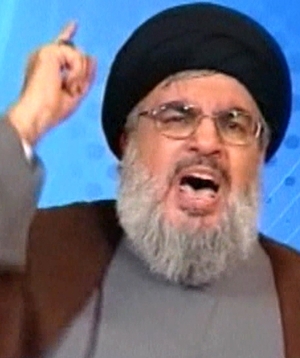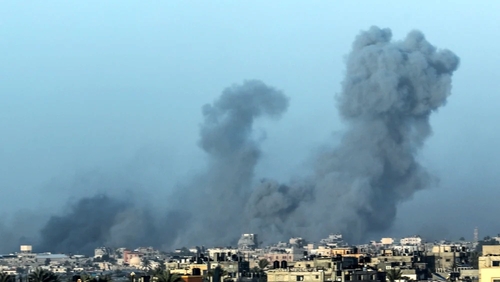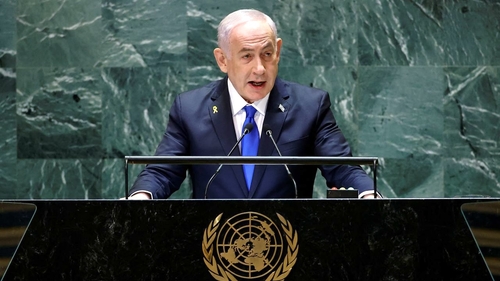 Hassan Nasrallah. |
With that praise out of the way, I shall criticize this step as a likely error: It distracts from the main theater of warfare, that of Gaza against Hamas.
For a year now, Israel has responded to the Oct. 7 atrocity. Not only was it unprepared on that day itself, but the government lacked plans for attacking Hamas, had relatively meager intelligence on its assets or leadership, and faced a powerful domestic and foreign lobby that urged making the return of hostages the first priority.
These limitations have rendered Israel's operation in Gaza only tolerably successful. Yes, military technicians may praise its tactics, but Hamas' leadership remains cohesive, its fighters remain active, its control over the population fairly intact, and its international support higher than ever. Not to put too fine a point on it, the middling progress over a year's duration contrasts dramatically with dispatching the three large state armies in six days in 1967.
To make matters worse for Israel, Hezbollah joined the conflict one day after Oct. 7. Enthused by the rampage and wanting to aid Hamas, it has attacked Israel's north with 8,000 rockets and missiles, destroying property, killing people, and forcing the long-term evacuation of more than 60,000 inhabitants. Israel demanded that Hezbollah cease its attacks and, when it did not, as any self-respecting state must, it took a series of measures, including the spectacular explosion of pagers and walkie-talkies.
 Israel has carried out large-scale operations against Hezbollah targets in Lebanon. |
The original goal had limited reach: induce Hezbollah to stop the aggression so people can return to their homes. This was a classic instance of deterrence. Cease and desist, or else.
But, as Israeli successes built on each other, the Israeli leadership succumbed to temptation, increased its ambitions, and lost its way. Forgetting deterrence, it decided (in the words of Prime Minister Benjamin Netanyahu) "also [to] defeat Hezbollah." Ending the rocket attacks gave way to ending Hezbollah itself. Jerusalem fell into a classic pattern among victors: lose sight of the original war goal, get carried away, and adopt needlessly larger ambitions.
 Israel's Prime Minister Benjamin Netanyahu declared war on Hezbollah at the United Nations on Sep. 27. |
As a result of this error, Israel now finds itself with two full-scale battles on its hands, in the south and in the north, and two organizations to destroy. It took on Hezbollah before killing Hamas and faces the prospect of killing neither.
Note the contrast: whereas a ceasefire with Hamas has terrible consequences for Israel because it means giving up national interests in favor of a few lives, a ceasefire with Hezbollah ends the rocket and missile attacks, permitting the residents to return home and Israeli forces to devote their entire attention to Hamas.
May the Netanyahu government change course, agree to a ceasefire with Hezbollah, and without distraction obliterate Hamas.
Mr. Pipes (DanielPipes.org, @DanielPipes) is president of the Middle East Forum and a former professor of strategy at the U.S. Naval War College. © 2024 by Daniel Pipes. All rights reserved.
Sep. 28, 2024 addenda: (1) I mention my Naval War College experience in the tagline above because I co-taught a course there on "policy and strategy." Based on the writings of Carl von Clausewitz, it seeks to drill into officers the need to decide on a war goal and then stick to it. Specifically, it warns against letting success lead to expanded goals. That is precisely what I see happening in Israel now: the brilliant offense versus Hezbollah makes the plodding war on Hamas look tedious, so why not de-emphasize the latter in favor of the former? That road leads to perdition.
(2) A number of readers disagreed with the analysis above on the grounds that Israel has effectively completed its war on Hamas. To which I reply:
If so, why does Hamas still threaten Gazans? Why is there no administration in place in Gaza? Why has reconstruction not started? Why has Netanyahu not claimed that the destruction of Hamas is completed?
(3) This article builds on a weblog entry, "Hamas' Continuing Power in Gaza."